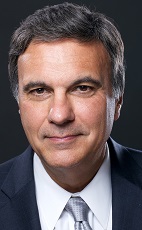
Social media has traditionally been approached as a marketing tool for top-of-funnel activities. However, the activities associated with generating awareness, like creating viral posts and taking advantage of real-time marketing moments, are difficult to measure and even harder to link to real business value. Yet, marketers innately know that social media has real opportunity as their audience is there—in volume and in frequency. As a result, a new trend is emerging among hotel marketers that takes distinct advantage of the direct follower model of social networks: the marriage of the loyalty program with social media marketing. READ MORE


 Consider these astonishing numbers - 1.49 billion active monthly Facebook users. 1.1 billion active monthly YouTube users. 320 million active monthly Twitter users and nearly 400 million registered users on LinkedIn. 400 million active monthly Instagram users and 200 million active Google+ users. The power and reach of social media is an awesome force and it has transformed how hotels interact with their customers. In the past year, social media advertising spending increased 33.5% to nearly $24 billion dollars. Social networks are being utilized by hotels to reach more visitors, expand brand awareness, enhance brand reputation and to establish more direct and personal communication with their customers. Though savvy hotel operators are adopting a comprehensive social media strategy, there are several emerging trends that deserve special mention. Video continues to be a powerful and influential element in social media marketing, with 70% of companies saying that it is their most effective marketing tool. Video generates a 62% higher engagement rate than photographs alone, and with new social sites like Meerkat and Periscope which offer live video streaming, those numbers will only increase. Sponsored content is another growing trend. Though advertorials have been around for decades, many companies are finding new ways to maximize the visibility of their content. Some hotels are placing sponsored content on Facebook, or on influencer blogs, or in other online industry publications with large pre-existing audiences. Still another trend is the integration of a "Buy Now" button into social media websites. Customers will be able to make purchases without ever having to leave their favorite social sites. This development is a major convenience for customers and should also be an additional revenue source for hotels. The February Hotel Business Review will explore these issues and examine how some hotels are successfully integrating social media into their operations.
Consider these astonishing numbers - 1.49 billion active monthly Facebook users. 1.1 billion active monthly YouTube users. 320 million active monthly Twitter users and nearly 400 million registered users on LinkedIn. 400 million active monthly Instagram users and 200 million active Google+ users. The power and reach of social media is an awesome force and it has transformed how hotels interact with their customers. In the past year, social media advertising spending increased 33.5% to nearly $24 billion dollars. Social networks are being utilized by hotels to reach more visitors, expand brand awareness, enhance brand reputation and to establish more direct and personal communication with their customers. Though savvy hotel operators are adopting a comprehensive social media strategy, there are several emerging trends that deserve special mention. Video continues to be a powerful and influential element in social media marketing, with 70% of companies saying that it is their most effective marketing tool. Video generates a 62% higher engagement rate than photographs alone, and with new social sites like Meerkat and Periscope which offer live video streaming, those numbers will only increase. Sponsored content is another growing trend. Though advertorials have been around for decades, many companies are finding new ways to maximize the visibility of their content. Some hotels are placing sponsored content on Facebook, or on influencer blogs, or in other online industry publications with large pre-existing audiences. Still another trend is the integration of a "Buy Now" button into social media websites. Customers will be able to make purchases without ever having to leave their favorite social sites. This development is a major convenience for customers and should also be an additional revenue source for hotels. The February Hotel Business Review will explore these issues and examine how some hotels are successfully integrating social media into their operations.






















.jpg?w=70)









